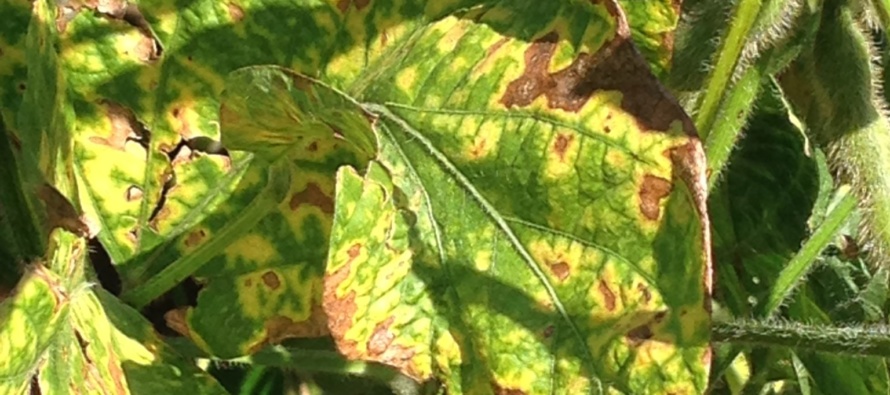2018 Soybean Stem Canker Inoculated Variety Trial Evaluations

Related Articles
- 2010 Soybean And Corn Variety Trial Data 3
- Rice Variety Trial Results For 2010, Plus Rice Research Report 0
- Evaluation of Peanut Prescription Rx Program in Mississippi 0
Latest Tweets
All of the entries in the 2018 Mississippi State University Official Variety Trials (OVT) were evaluated for their reaction to the stem canker fungus. In addition, a few varieties (n=10) were added to supplement the trials and obtain information on those particular varieties that were not entered by the seed respective companies in the MSU-OVT. In addition, we added some entries based on the observations made at the 2017 Clarksdale OVT location (MG IV early and late; MG V early and late) which had severe stem canker and from the 2017 inoculated trials for the purposes of comparisons in our 2018 inoculated trials (n=13). Trials consisted of single rows of each cultivar planted in 10 foot plots and replicated 4 times. Within each row, a total of 10 plants were inoculated with a single toothpick that contained the fungus that causes stem canker (four isolates of the fungus were used for a fungal cocktail on toothpicks). Plants were inoculated approximately 8 weeks post-planting. Evaluations of stem canker severity were conducted between R6 and R6.5 by observing the stem of each inoculated plant for the presence of a canker. Observations of each variety were conducted using a modified 0-9 scale. Information contained within each table contain the analyzed stem canker rating as an average of all inoculated plants within the four replicate plots. In addition, each cultivar includes a stem canker designation: R=resistant, MR=moderately resistant, MS=moderately susceptible, S=susceptible. In field situations where stem canker has been observed plant cultivars that have been observed to contain resistance to stem canker. In addition, keep in mind that observations of stem canker tend to be more obvious when the environment is conducive for disease development. Therefore, over time, and in years when the environment may not be conducive for the development of stem canker, it is possible that stem canker designations change between years. Moreover, as additional fungal isolates are added to the collection it is possible that the rating as well as cultivar designation can change accordingly.
Please note: The statistical analysis used on these data, a rank transformation prior to the means analysis, may make some values appear skewed. The letter groupings listed after values are for the rank transformed values, but the non-transformed data are presented to present the true mean of the scores assessed in the field.
RoundUp Ready/Xtend varieties:
Maturity Group IV Early (2018 stem canker MG IV EARLY)
Maturity Group IV Late (2018 stem canker MG IV LATE)
Maturity Group V Early (2018 stem canker MG V EARLY)
Maturity Group V Late (2018 stem canker MG V LATE)
Conventional varieties:
Maturity Group IV Conventional (2018 stem canker MG IV CONV)
Maturity Group V Conventional (2018 stem canker MG V CONV)
LibertyLink varieties:
Maturity Group IV LibertyLink (2018 stem canker MG IV LL)
Maturity Group V LibertyLink (2018 stem canker MG V LL)





Let me tell You a sad story ! There are no comments yet, but You can be first one to comment this article.
Write a comment